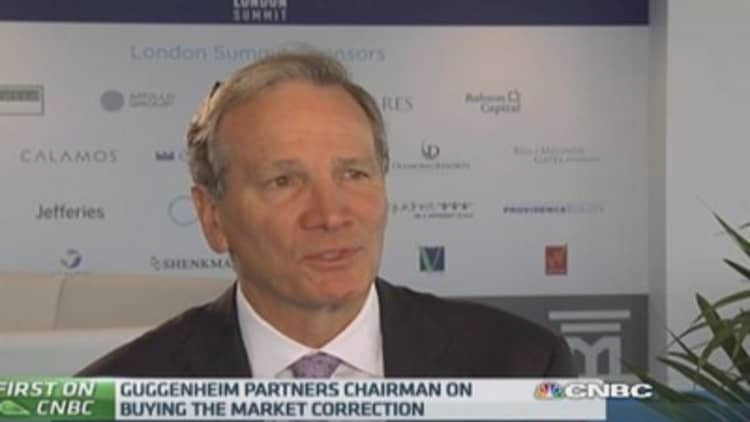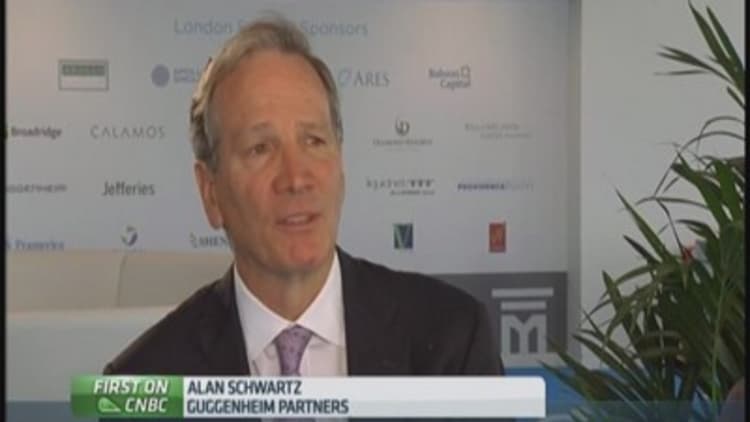
Moves to boost the U.S. housing market could fuel the next credit bubble, warned Alan Schwartz, the former head of Bear Stearns, which collapsed during the 2008 subprime mortgage crisis.
Earlier this month, the U.S. Federal Housing Finance Agency announced plans to return to allowing Americans to buy homes with deposits as low as 3 percent in order to help boost the faltering housing market. At present, borrowers must offer a down-payment of 5 percent to receive a guaranteed mortgage.
Schwartz, who is now executive chairman at Guggenheim Partners, warned on Monday that the proposed move could propel the U.S. economy into a credit boom, like the one seen in the years prior to the financial crisis of 2007-08.
"When you give credit to people with very low down payments, and they can walk away from their mortgage, that is sowing the seeds of the next cycle," Schwartz told CNBC.
Last week, the U.S. Mortgage Bankers Association forecast there would be $1.19 trillion in mortgage origination during 2015, a 7 percent increase from 2014.
"The U.S. economy became extremely dependent on credit and there is a desire to go back to being very credit dependent," Schwartz added.

The subprime mortgage crisis saw several major U.S. financial institutions collapse in 2008, and led to Bear Stearns's sale to JPMorgan Chase. The crisis was triggered by a sharp decline in home prices, which was catastrophic for banks that had loaded up on mortgage-backed securities in the preceding boom years.
"What I learned from the crisis is that as you get older, you get more used to the risks you have seen before—or think you have seen before," Schwartz told CNBC on Monday.
"We saw another cycle coming and we assumed we would be able to handle it, and sometimes what you assume from the past is very different from the future. So it teaches you not to get complacent about the risks you think you have already seen."
Deflation rearing its 'ugly' head
Schwartz also warned that deflationary pressures were the greatest risk facing the global economy.
"Deflation is a very powerful force. It is rearing its ugly head again and we still have not conquered it," he told CNBC.
Waning inflation has proved particularly problematic in the euro zone, where annualized inflation came in at 0.3 percent last month compared to 1.1 percent in the same period a year before.
Like European Central Bank President Mario Draghi, Schwartz said that euro zone countries needed to tackle the problem through fiscal policy, rather than relying on central bank stimulus measures.
"It is a demand issue," Schwartz told CNBC. "I think the monetary policy of the ECB is appropriate; I think they are going to have to figure out other policies, fiscal policies, to get things going."
Clarification: This piece has been amended to reflect that Alan Schwartz is executive chairman at Guggenheim Partners.

